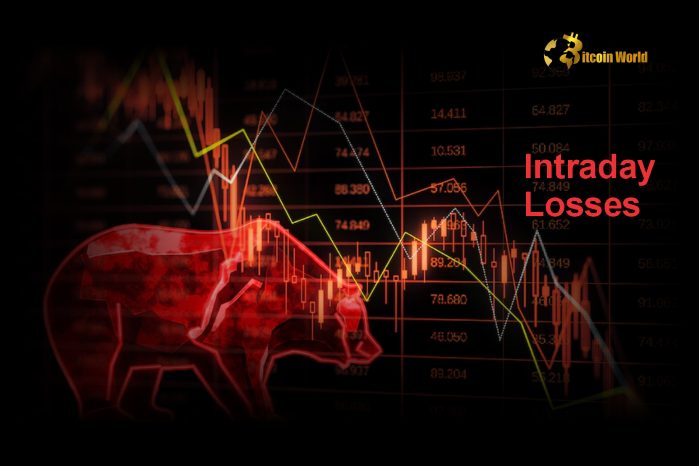U.S. Markets Experience Sharp Intraday Losses: Nasdaq, S&P 500, and Dow Jones Decline
U.S. stock markets faced a turbulent trading session as all major indices recorded significant intraday losses. The Nasdaq Composite led the decline, dropping 2.10%, while the S&P 500 fell 1.53%, and the Dow Jones Industrial Average decreased by 1.13%. The downturn reflects growing investor concerns over macroeconomic uncertainty and market volatility.
What Caused the Market Decline?
1. Concerns Over Interest Rate Policy
- Persistent fears about the Federal Reserve’s monetary tightening measures contributed to market unease.
- Investors are weighing the possibility of further rate hikes to combat inflation, which could dampen economic growth.
2. Economic Data Misses Expectations
- Recent economic reports indicate slower-than-expected consumer spending during the holiday season.
- Weaker retail performance has added to concerns about the health of the U.S. economy.
3. Tech Sector Under Pressure
- The tech-heavy Nasdaq suffered the steepest losses, with major companies such as Tesla, Apple, and Nvidia facing sharp declines.
- Rising interest rates disproportionately affect tech firms, which rely on growth-driven valuations.
Sector Performance Highlights
1. Technology
- Tesla dropped 3.5%, while Apple fell 2.8%, leading losses in the tech sector.
- Chipmakers such as AMD and Nvidia also experienced declines amid concerns about reduced demand in 2025.
2. Financials
- Financial stocks remained relatively stable but faced minor losses as interest rate concerns persisted.
- JPMorgan Chase and Bank of America reported declines of 0.9% and 0.8%, respectively.
3. Consumer Discretionary
- Retail stocks like Target and Amazon struggled as holiday sales data revealed lackluster performance.
- Amazon fell 2.2%, reflecting broader concerns about consumer spending.
Market Sentiment: What Are Analysts Saying?
1. Volatility to Persist
- Analysts expect heightened market volatility in the coming weeks as investors process economic data and corporate earnings reports.
- “This pullback is likely a response to mixed signals from economic indicators,” said a senior analyst at Morgan Stanley.
2. Buying Opportunities Amidst the Decline
- Some strategists view the downturn as a chance to accumulate quality stocks at lower prices.
- “Long-term investors should focus on sectors like healthcare and energy, which may offer resilience in a slowing economy,” noted an equity strategist.
Global Market Impacts
1. Asian and European Markets
- The losses in U.S. markets followed a similarly weak performance in Asian and European markets earlier in the day.
- Japan’s Nikkei 225 and Germany’s DAX closed down 1.7% and 1.3%, respectively.
2. Impact on Cryptocurrencies
- The decline in equity markets mirrored the performance of major cryptocurrencies, with Bitcoin and Ethereum down 2% and 1.5%, respectively.
How Should Investors Respond?
1. Diversification is Key
- Investors should ensure their portfolios are diversified across various sectors and asset classes to mitigate risks during volatile periods.
2. Monitor Key Economic Data
- Keep an eye on upcoming economic reports, including the Federal Reserve’s next meeting and corporate earnings announcements.
3. Stay Focused on Long-Term Goals
- While market pullbacks can be unsettling, they often present buying opportunities for long-term investors.
Conclusion
The U.S. markets experienced significant intraday losses on December 27, with the Nasdaq Composite, S&P 500, and Dow Jones all declining amid growing economic uncertainty and pressure on the technology sector. As investors navigate this challenging environment, staying informed and maintaining a long-term perspective will be crucial.
To learn more about the innovative startups shaping the future of the crypto industry, explore our article on latest news, where we delve into the most promising ventures and their potential to disrupt traditional industries.
Disclaimer: The information provided is not trading advice, Bitcoinworld.co.in holds no liability for any investments made based on the information provided on this page. We strongly recommend independent research and/or consultation with a qualified professional before making any investment decisions.

